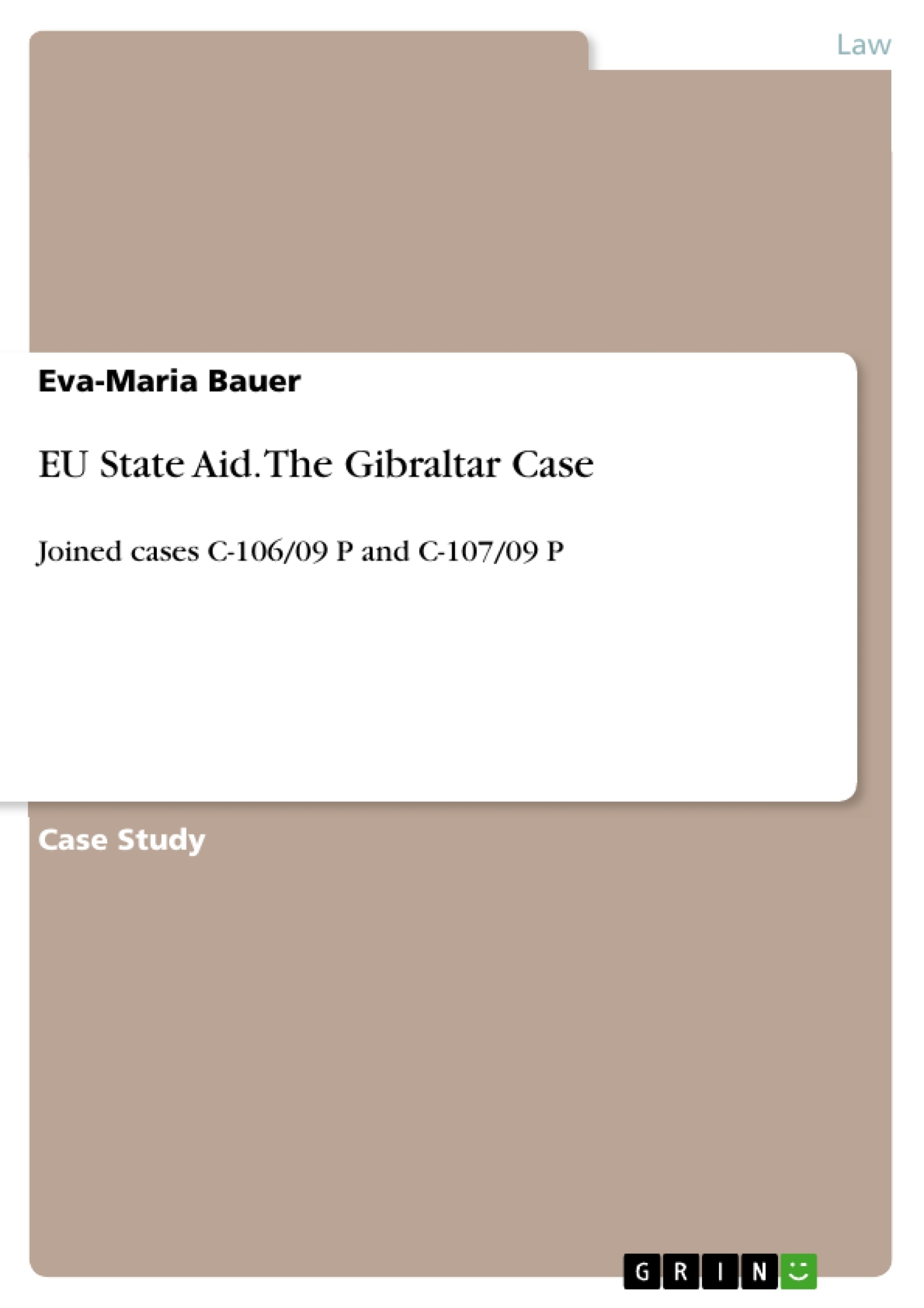Since the beginning of the economic and financial crisis harmful tax competition increased and therefore also public concern in regard to aggressive tax planning augmented. Many countries try to attract foreign capital by setting low corporate income taxes. For example in Ireland and in Cyprus there is a tax of 12.5 %. A lot of multinational companies use these tax systems to reduce their overall tax burden and so they choose a low-tax-country for incorporation. To mention the BEPS Action Plan, many actions aim at reducing aggressive tax practises and therefore reducing shifting profits in low-tax-countries.
As there will be no way in near future to harmonize tax bases and tax rates within the European Union, the European Commission tries to restrict distorting tax competition by using EU State Aid rules. Therefore it does not focus on tax rates or policies as such, but on tax rulings for specific firms. The Commission stated that: “Under State aid rules, national authorities cannot take selective measures that allow certain companies to pay less in taxes than they should if the tax rules of the country were applied in a fair and non-discriminatory way.”
Inhaltsverzeichnis (Table of Contents)
- Introduction
- EU State Aid Rule
- Gibraltar Case
- Facts
- Decision of the European Commission
- Judgement of the General Court
- Judgement of the Court of Justice of the European Union
- In accordance with previous case-law?
- Application to prospective tax matters
- Conclusion
- List of references
Zielsetzung und Themenschwerpunkte (Objectives and Key Themes)
This term paper examines the EU State aid rule in light of the Gibraltar Case (Joined cases C-106/09 P and C-107/09 P). The paper aims to analyze the application of EU State aid rules to tax rulings for specific firms and its impact on distorting tax competition within the European Union.
- EU State Aid Rule and its application to tax rulings
- Harmful tax competition and aggressive tax planning
- The Gibraltar Case and its implications for EU State aid law
- The role of the European Commission in regulating State aid
- The impact of EU State aid rules on future tax matters
Zusammenfassung der Kapitel (Chapter Summaries)
- Introduction: This chapter sets the stage by highlighting the increasing concern over aggressive tax planning and harmful tax competition within the EU. It emphasizes the use of EU State aid rules by the European Commission to restrict distorting tax competition.
- EU State Aid Rule: This chapter delves into the legal framework of EU State aid, drawing on the Treaty of the Functioning of the European Union (TFEU). It outlines the general prohibition of EU State aid, its exceptions, and the four criteria necessary for identifying State aid.
- Gibraltar Case: This chapter focuses on the Gibraltar Case, which involves a tax ruling granted by the UK government to Gibraltar. It examines the decision of the European Commission, the judgments of the General Court and the Court of Justice of the European Union, and the implications of the case for future tax rulings.
- In accordance with previous case-law?: This chapter discusses the consistency of the Gibraltar Case judgment with previous case law regarding EU State aid.
- Application to prospective tax matters: This chapter explores the potential applications of the Gibraltar Case judgment to future tax matters within the EU.
Schlüsselwörter (Keywords)
This term paper focuses on key concepts such as EU State aid, tax rulings, harmful tax competition, aggressive tax planning, the Gibraltar Case, and the role of the European Commission in regulating State aid. It examines the intersection of EU law, tax law, and international tax policy.
Frequently Asked Questions
What is the focus of the Gibraltar Case regarding EU State aid?
The Gibraltar Case focuses on whether specific tax rulings and corporate tax systems provided by national authorities constitute selective advantages that violate EU State aid rules.
How does the European Commission define illegal State aid in tax matters?
National authorities cannot take selective measures that allow certain companies to pay less tax than they would under the country's normal, fair, and non-discriminatory tax rules.
What are the four criteria for identifying State aid?
To be considered State aid, a measure must involve state resources, provide a selective advantage, distort competition, and affect trade between EU Member States.
What was the outcome of the Gibraltar Case?
The Court of Justice of the European Union clarified how selectivity is determined in tax systems, reinforcing the Commission's power to restrict distorting tax competition.
Why is tax harmonization difficult in the EU?
As there is no immediate way to harmonize tax bases and rates across all Member States, the Commission uses State aid rules as a tool to prevent aggressive tax planning and profit shifting.
- Citation du texte
- Eva-Maria Bauer (Auteur), 2016, EU State Aid. The Gibraltar Case, Munich, GRIN Verlag, https://www.grin.com/document/345181



